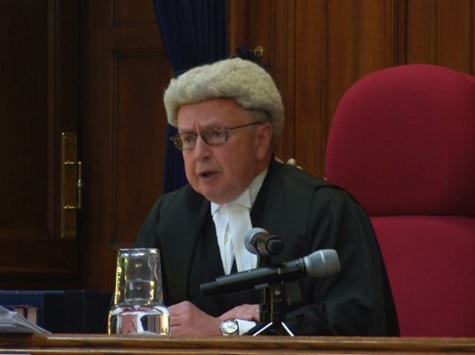
The British Court of Appeal has halted an attempt by prosecutors to hold a terror trial completely in secret. Instead the judges ruled that the “core” of the trial could be partly held in secret but other elements of it must be public, according to Independent.
The Crown Prosecution Service had asked for the secrecy as they said elements of the case involved issues of national security. They even warned they may have to drop the case altogether unless they were assured confidentiality.
However judges dismissed the request for complete secrecy and allowed certain elements of the case to be report, including the names of the two defendants: Erol Incedal and Mounir Rarmoul-Bouhadjar. They had previously been referred to as AB and CD.
The two are accused of various terrorist offences and were arrested in October 2013. At the time, the circumstances surrounding their arrest were widely reported, but since then restrictions have been put in place.
The judges did accept that the trial was of an exceptional nature, so it could be held partly in secret, but they remained concerned about the implications of secret trails.
Lord Justice Gross said: “Open justice is both a fundamental principle of the common law and a means of ensuring public confidence in our legal system.
“Exceptions are rare and must be justified on the facts. Any such exceptions must be necessary and proportionate. No more than the minimum departure from open justice will be countenanced.
“For the [secret intelligence] agencies to operate effectively, at least much of their work is secret and must remain so as a matter of necessity. From time to time, tensions between the principle of open justice and the needs of national security will be inevitable.”
A spokesman for the attorney general said the Crown Prosecution Service would abide by the court’s decision: “The measures applied for by the CPS in this case were, they believed, justified in order for the trial to proceed and for the defendants to hear the evidence against them while protecting national security.
“We are pleased that the court recognised the strength of some of these arguments, and that the case can go ahead. The CPS has indicated it accepts the judgement of the court and will tailor its approach to the prosecution accordingly.”
Isabella Sankey, director of policy for campaign group Liberty, said the judges’ verdict was better than a “blacked-out trial”, but criticised the court’s “deference” to ministers’ national security concerns. She added: “Shutting the door on the core of a criminal trial is a dangerous departure from our democratic tradition.”
The case will reignite a long running debate in Britain about the balance between the rights of the accused and the need to protect the public. Throughout the 1970s and 1980s Britain was the victim of significant terrorist activity related to Northern Ireland.
In a number of cases, notably the Birmingham Six and the Guildford Four, people were convicted of terrorist attacks but were later exonerated. In many of these cases a lack of transparency in the investigation and legal process was blamed for the miscarriages of justice. In some cases evidence that might have freed the accused was withheld from the defence, a move justified by national security concerns.
On the other hand, most people convicted of terrorist offences have been caught because of undercover work by the security services. To publicly state how information is gathered, or even what information they have, could easily compromise sources or warn terrorist about weaknesses in their own systems.
The judges today are likely to have wanted to put as much in the public domain as possible, even if it is only the names of the defendants, the swearing in of the jury, the verdict and a few minutes of opening statements. It nonetheless sends a signal.

COMMENTS
Please let us know if you're having issues with commenting.